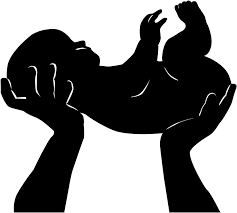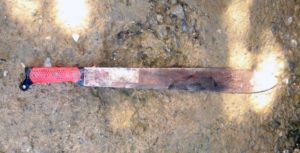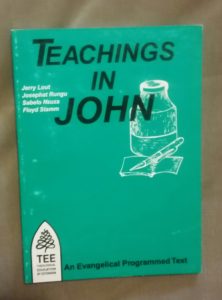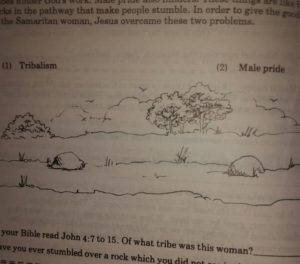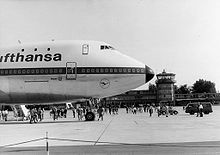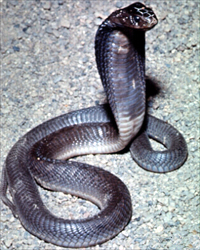I never grew a warm place in my heart for serpents. Never acquired the taste.
“Good morning, Bwana.” The man labored up the slope, evidently with merchandise.
Not that snakes were uncommon on the farm where I grew up. Water Moccasins (Cottonmouths) and a few non-poisonous varieties often found their way to our pastures and watering ponds. A pleasant summer past-time of mine, in fact, was picking off the occasional slithering intruder, using my dad’s .22 rifle. But there was a difference between then and now, this place and that place. The snakes on the Oklahoma farm tended to be shorter. . . by ten feet or more.
The Kuria tribesman was calling to me as he pushed his aging bicycle up our grassy driveway inside the mission compound. The bike’s rear tire seemed low, probably due to the load – whatever it was – concealed in a well-worn burlap bag atop the bicycle’s carrier rack.
I greeted the stranger and soon learned he was a near neighbor – his family occupying two thatch-roofed huts. A boma (homemade corral) sandwiched between.
I eyed the bag with increased curiosity. It was anchored down by strips of discarded inner tube.
The African’s smile stayed happily in place under his floppy brown hat.
“We Kuria find that missionaries like the skins. The white people coming before you – they pay us for what we bring.”
My new-discovered neighbor began unfastening the rubber strips. Heaving the coarse bag to the ground he untied a thin strand of fresh tree bark used to bind the sack. Slowly he drew out the contents.
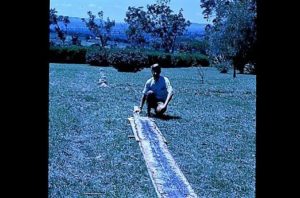
A few minutes of back and forth discussion followed.
Pocketing the shillings I handed him – roughly a dollar’s worth – he turned his bicycle and rode off.
I stared at the python spread lengthwise before me, its patchwork pattern and sheer size a thing of wonder.
How do they skin these things?
My mind rehearsed the Kuria man’s account.
He had wakened in the night to the screams of one of his goats. It was being seized and encircled by the great serpent. Two gashes in the snake’s body revealed where the rescuer’s spear struck. More drama followed until the snake finally lay dead (I never learned the final state of the goat).
Shortly after the skirmish the man walked his bicycle onto our property.
Once I skinned the snake I spread it full-length on the longest, flattest board I could find. With small nails I secured it, the inside stretched open to the sunny sky. I powdered it generously with table salt. It can dry there and hopefully cure.
Reaching to my tool box I found a measuring tape. Nose to tail the reptile stretched 17 feet.
Mid-afternoon I was startled by a sudden cry from my wife outside – not of terror but of alarm. She was racing toward our first-born. “No, Julie! No, No, don’t touch!”
Our 30 month old daughter had by this age been introduced to the tangy flavor of salt. Spotting the seasoning sprinkled atop a curious thing on a length of wood, she had begun taking in direct samples on her happily extended tongue. Interrupted, thankfully, before acquiring a taste.
©2017 Jerry Lout


